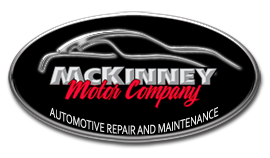When people think of diesel engines, the first things that often come to mind are noisy trains and commercial trucks with smelly exhaust. But diesel engines have come a long way since they were first introduced in the 1920s and ’30s for commercial and passenger vehicles. Even the models popular in the ’80s have seen big improvements.
Modern technology has all but eliminated the noises and smoke, and today, more than 50% of new cars sold in Europe have diesel engines. Driving diesel-powered has also gained popularity in North America, with many people preferring their outstanding fuel economy and powerful, durable engines.
Research has shown that there are several benefits to driving a diesel-fuelled vehicle.
Environmentally Viable
Diesel-powered engines have to comply with strict emission regulations, making them just as clean as their gas-powered cousins.
Reduced Tax Load
Road tax regulations base the amounts drivers owe on CO2 emissions. Since these are low with diesel vehicles, owners tend to pay lower taxes than on gas-powered vehicles.
Better Fuel Efficiency
One of the biggest benefits of driving a diesel is that they are, on average, more fuel-efficient than gasoline-powered ones — in some cases, up to 25 to 30% more efficient. This means you won’t have to fuel up quite as often as if you were using gasoline. This fuel efficiency is achieved in part because diesel engines have a higher compression rating and can generate more power from less fuel. Modern high-pressure fuel injection systems are also present in many new pickups, giving them even better fuel economy.
A diesel vehicle loses some of its fuel-efficiency advantages if you’re driving it every day, primarily in the city. It will still be more efficient than gas engines, but less so — you really get your bang for your buck by racking up highway miles.
Increased Torque
The factors contributing to its great fuel efficiency — combined with diesel fuel’s high heat content — allow diesel engines to produce higher torque than other engines. Torque is the generation of cylinder pressure that powers the wheels, leading to smooth and powerful accelerations. That’s one reason large trucks are used to haul heavy loads and do heavy-duty towing.
Decreased Maintenance
Diesel engines are powered by internal combustion but don’t have distributors or a spark-plug-based ignition system like gasoline engines. Instead, diesel is ignited by compressed hot air. This difference means a diesel vehicle won’t require ignition repairs and has a lowered risk of electrical failures. Diesel-powered engines are generally considered highly reliable and have an increased lifespan.
Increased Safety
Diesel is less combustible and has a higher flashpoint than regular gasoline, meaning it’s less likely to burst into flames in an accident. A spark is not likely going to cause it to explode.
If you’re lucky enough to own a diesel-powered vehicle, you’ll experience these benefits first-hand. Even though your diesel vehicle has many benefits, it will still need regular preventative maintenance to keep it running smoothly. Book an appointment today with Albuquerque’s own McKinney Motor Company. Their friendly service mechanics can provide complete vehicle maintenance and services.








